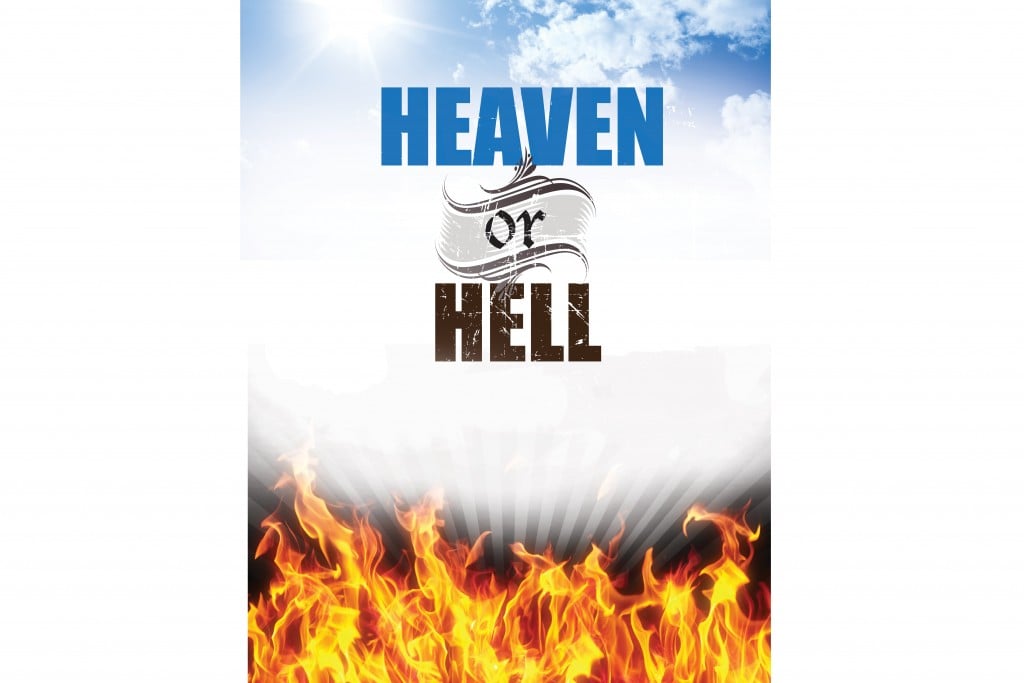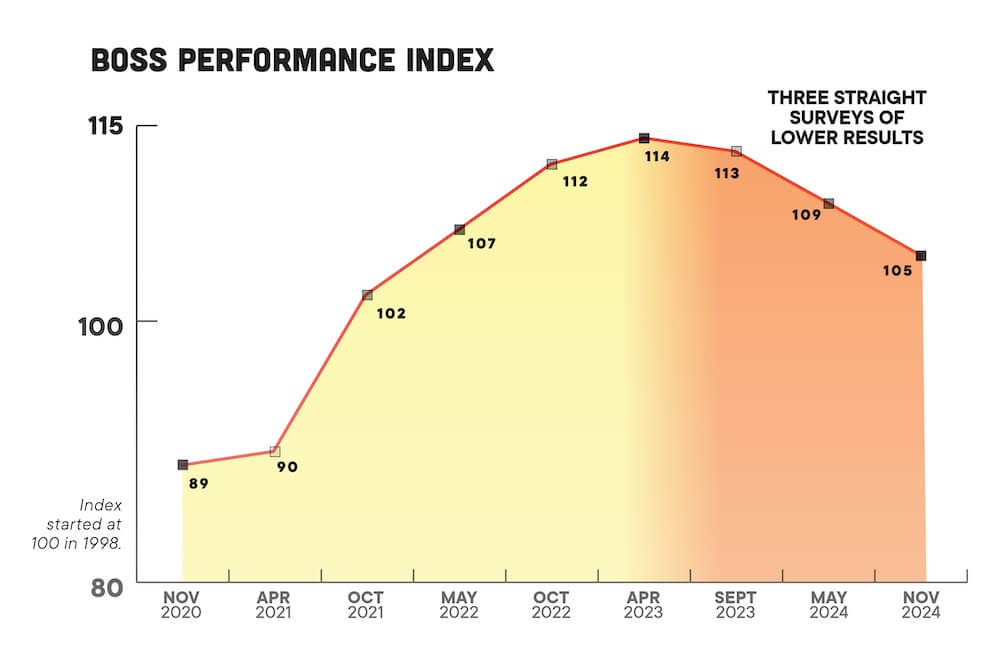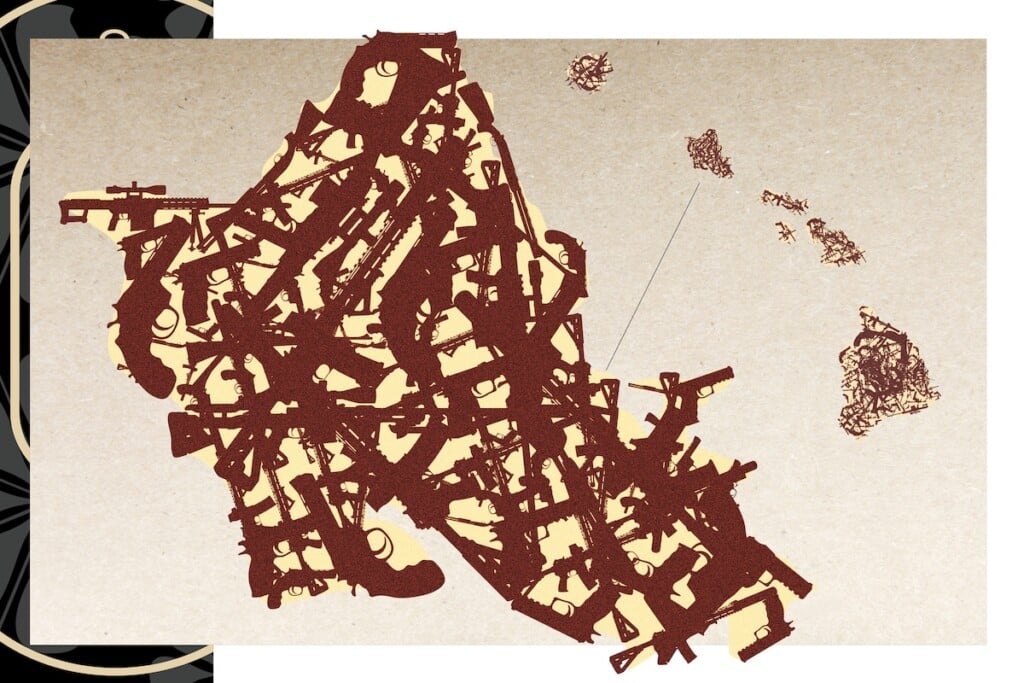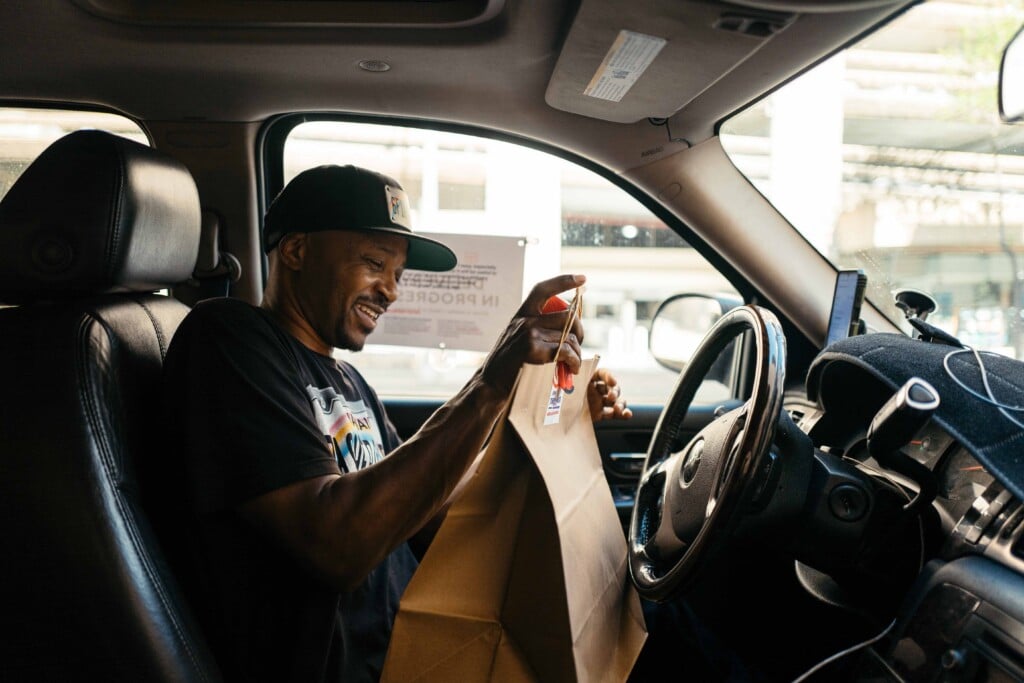Finding Franchise Heaven and Avoiding Franchise Hell

Owning a franchise is always hard work, but here’s how to avoid the hellish pain and reap the heavenly rewards
David and Carla Lehn were first-time franchisees who hoped that by purchasing the only Quiznos fast-food restaurant on Kauai, they could supplement their income with the profits. Three and a half years later, they’re still at least a year away from making any returns on their investment.
“It looked like it was going to be a really good deal at the time and, at that point, we felt like the economy had shown signs of improvement,” says David Lehn. “We didn’t go looking for it. It was actually owned by a friend of ours.
“It’s a business that we continue to invest in, but we haven’t made any money. Our biggest success is that our doors are still open.”
The Lehns’ story is a cautionary tale about buying a franchise. Many people have successfully made their living from franchises in Hawaii, but others have lost their entire investment.
Quiznos is one chain that has a poor record in the world of franchising. From 2008 through 2010, nearly 1,900 of 4,633 Quiznos franchise locations closed their doors nationwide, according to the company’s 2011 franchise disclosure document. By 2006, four class-action lawsuits had been brought against Quiznos Franchise Co. LLC and other related parties for alleged excessive supply and food costs, misuse of the marketing and advertising fund, and royalty disputes with franchisees who signed agreements, but did not open their restaurants, according to documents and other information on the Quiznos national settlement website.
Though Quiznos denied any wrongdoing, a settlement valued at $206 million by an outside franchise expert hired by lawsuit attorneys was reached in 2010, in which thousands of current and former franchisees received monetary compensation and food and supply discounts, and were forgiven royalty and marketing-fee debts.
Today, the national company is under new ownership with a plan to improve company branding and franchisee relations.
While Lehn admits that his location and the weak economy have contributed to his difficulties, he also believes systemic problems with Quiznos franchising are to blame.
“It was because of some things that were happening at the corporate level. They thought at the time it was a good idea to change the brand to compete with other restaurants,” he says. “They had deeply discounted meals, other things they thought would continue to bring people into their locations, but Quiznos was supposed to be an upscale fast-food restaurant. The whole business was based on providing a better-quality, fast-dining experience. When they made those changes they thought would improve operations; it backfired on them and it backfired on us.”
Success Not Guaranteed
To aspiring and experienced entrepreneurs, a franchise might sound like the perfect way to be one’s own boss while minimizing risk with an established brand and proven business model.
“A lot of people think (franchising) is a good idea. They think, ‘This is my ticket to being rich,’ ” says Steven Egesdal, partner at Carlsmith Ball LLP’s Hawaii office, who works in franchise law. “The problem with that is it actually takes a lot of money and resources, and it’s also a huge investment of time and energy. There is no guarantee for success.
“The biggest mistake (franchisees) make is not anticipating how much work it’s going to be. I think when people buy a franchise, they think a lot of the work is going to be done for them. … All they’re given is the picture frame, but they’ve still got to fill in the picture.”
After owning his franchise for over a year, Henry Telles knows this well. In 2002, Telles moved to Hawaii after he was laid off from his job as a software engineer in Florida. Ten days after landing on Oahu, he took a minimum-wage job working at the first Teddy’s Bigger Burger restaurant on Monsarrat Avenue. Ten years later, he moved to Maui and became owner of the only Teddy’s franchise in the state (other Hawaii locations are company- or affiliate-owned).
“It’s not easy, but it’s very rewarding,” Telles says. “And just like anything in life, hard work begets the reward.”
He estimates he spends more than 100 hours a week running his Lahaina store, including the time spent cooking Teddy’s burgers at games for Maui’s pro baseball team, Na Koa Ikaika Maui. “It’s almost like having a second location,” he says.
Telles estimates it will take four more years to make back his investment, but he’s already thinking about other locations. “People are asking when we’re opening in other parts of the island. We’d definitely look into opening other locations. … For me, it’s TFL, Teddy’s for life.”
Finding the right franchise is the most important thing a prospective investor can do, but many make mistakes and end up suffering for it.
“I hate to see people lose hard-earned money on a pitch,” says Egesdal. That’s why the advice he gives his clients often means they decide not to purchase a franchise.
“The franchisor, whether directly or through a broker, wants to get you on board. They’re in sales mode,” he says. “ … That’s why the key thing that anyone should do is the due diligence.”
For a prospective franchisee, due diligence includes thoroughly reading the Federal Trade Commission-mandated franchise disclosure document (FDD), which includes 23 sections detailing various aspects of the franchise system, from franchise fees and initial investment estimates, to a franchisor’s litigation details and financial statements.
Hawaii is one of 15 states that regulate franchises. Under the state Franchise Investment Law, franchisors are required to register their FDDs with the state every year they intend to open any franchises in the Islands.
“Unfortunately, prospective franchisees don’t really read the (FDD),” says Nathan Natori, owner and attorney at Honolulu-based Natori Law Office LLLC. “Some are over 100 pages long and they may be a little hard to understand and definitely overwhelming, but it’s necessary.”
Egesdal and Natori also stress that prospective franchisees should spend a lot of time contacting current and past franchisees, whose contact information is available in section 20 of the document.
“People are easily sold and franchisors aren’t going to tell you the bad stuff,” says Egesdal. “The only way you’ll find that stuff out is by talking to current or previous franchisees.”
Before he committed to purchasing the Kauai Quiznos, owner David Lehn says, he contacted other Quiznos owners to find out more about the company’s franchise system and whether they thought the price he would be paying was competitive. However, he admits he did not know about the class-action lawsuits against the company when he bought his restaurant and feels he and his wife rushed into their decision to buy.
“In hindsight, we made the decision a little more quickly than we probably should have,” he says. “There was a short timeframe for us to do everything. We had not researched other franchises and I would say I wasn’t completely knowledgeable about what it means to own a franchise.”
Some digging on the Internet can also reveal a lot about different franchisors, especially larger systems with franchises around the country. There are many websites and organizations dedicated to informing current and prospective franchisees about the state of the industry, as well as franchise opportunities and news about specific franchises.
Every year, the federal Small Business Administration releases a list of failure rates for SBA-backed loans to franchisees. From 2001 to 2011, nearly 40 percent of those loans to Quiznos franchisees failed compared to little more than 9 percent of similar loans to franchisees of Subway, the largest quick-service franchise in the world. Though this list does not include private loans without SBA backing, and Subway franchisees are no strangers to grievances either, the SBA’s loan-failure list is an important indicator of the health of a franchise brand.
Due diligence is crucial, says Natori, but so is an exit strategy, in case things don’t pan out as planned. “I guess (prospective franchisees) are very optimistic and feel really good about entering into their own business,” he says, “but failing to have an exit strategy can really make things difficult. For example, landlords may require personal guarantees for leases, so you cannot just bail out on a lease, even if you sell it to somebody else to take over your business. The same thing goes with lenders.”Hawaii’s Situation
Prospective franchisees should also understand that Hawaii poses unique challenges. Though FDDs provide estimates of your initial investment in a franchise, Egesdal says, those estimates don’t apply here. “Most FDDs are prepared for mainland outlets, so expect costs (in Hawaii) to be quite a bit more.”
Hawaii’s geographic isolation and high cost of living also mean overhead costs are significantly higher than for mainland franchisees.
“Everything we bring in has to be shipped,” says Lehn. “I cringe every time a barrel of oil goes up to $115.”
Not to mention that national marketing and advertising campaigns may not extend to the Islands, and are less effective, maybe even counterproductive when local franchisees are unable to honor promotional pricing and coupons. How many times have you been upset to find that a cheap promotional price you saw on TV or a discount coupon that you downloaded from the Web doesn’t apply to Hawaii?
Despite this, local franchisees are still required to contribute a percentage of their gross weekly sales to a marketing and advertising fund, in addition to the weekly royalties they must pay.
“I’ve put around $1,200 a month on advertising that I believe I get no benefit from,” Lehn says.
Bobby Guied, owner of the Kapolei Quiznos franchise, adds, “Marketing is one of the most important things, but a lot of people didn’t even know what Quiznos was.”
Future with Quiznos
Luckily for Lehn and Guied, Quiznos’ national owners have revved up efforts to improve branding and business for its franchisees since a change in majority ownership and completion of financial restructuring early this year.
In May, the company launched Qrave Quiznos, a new branding campaign; introduced the new “Better Than Ever” menu; and announced its commitment to improving its products and customer service, and providing franchisees with more resources.
“The relationship between the corporation and its local franchisees has improved dramatically since the restructuring,” Lehn says. “There is a lot more communication and, at this point, it is communication, whereas before it was more of a directive.”
Though Quiznos is making a significant effort to rebuild its franchise base and reputation, Lehn is unsure of his future as a Quiznos franchisee. “We’ll keep it open now,” he says, “and then, depending on how the next year or so goes, make a determination whether we should just sell and move on.”
HB intern Michael Hanson contributed to this report.
Rates of Loan Failure
The federal Small Business Administration each year releases a list of the failure rates on SBA-backed loans to franchise owners. The list is an important indicator of the success rate of franchise brands in America. The latest list includes data from Oct. 1, 2001 through Sept. 30, 2011. Hawaii Businessfiltered the SBA list to only include franchises with 50 or more loan disbursements and at least one location in Hawaii.
| BRAND | FAILURE RATE | NUMBER OF LOAN DISBURSEMENTS |
|---|---|---|
| AAMCO TRANSMISSIONS | 39.9% | 198 |
| ACE HARDWARE | 15.0% | 280 |
| AMERIPRISE FINANCIAL SERVICES | 0% | 63 |
| ANYTIME FITNESS* | 7.83% | 217 |
| ARBY’S | 18.6% | 86 |
| BASKIN-ROBBINS 31 ICE CREAM | 23.58% | 229 |
| BEST WESTERN INN | 5.04% | 238 |
| BLIMPIE | 45.74% | 129 |
| BUDGET BLINDS | 37.31% | 67 |
| BUFFALO WILD WINGS GRILL & BAR | 4.76% | 63 |
| BURGER KING | 10.39% | 77 |
| CARTRIDGE WORLD STORES | 25.83% | 151 |
| CENTURY 21 | 7.46% | 67 |
| CERTA PROPAINTERS | 19.18% | 73 |
| CHEVRON (GAS STATION) | 12.32% | 138 |
| CHOICE HOTELS INTERNATIONAL INC. | 5.99% | 317 |
| CHURCH’S FRIED CHICKEN | 19.61% | 51 |
| COLD STONE CREAMERY, INC. | 41.93% | 787 |
| CURVES FOR WOMEN | 25.35% | 359 |
| DAIRY QUEEN | 9.41% | 542 |
| DAYS INN | 6.19% | 420 |
| DENNY’S RESTAURANT | 10.67% | 75 |
| DOMINO’S PIZZA | 22.18% | 284 |
| EDIBLE ARRANGEMENTS | 16.16% | 198 |
| FANTASTIC SAM’S | 24.15% | 207 |
| FASTSIGNS | 18.1% | 105 |
| GENERAL NUTRITION CENTER | 22.81% | 57 |
| GREAT HARVEST BREAD CO. | 10.77% | 65 |
| HOLIDAY INN | 5.8% | 69 |
| HOME INSTEAD SENIOR CARE | 3.33% | 60 |
| INTERNATIONAL HOUSE OF PANCAKES | 9.01% | 111 |
| JACKSON HEWITT TAX SERVICE | 9.62% | 52 |
| KENTUCKY FRIED CHICKEN | 12.7% | 63 |
| LIBERTY TAX SERVICE | 15.63% | 128 |
| LITTLE CEASAR’S PIZZA | 4.35% | 184 |
| MAACO AUTO PAINTING CENTER | 29.09% | 165 |
| MAIL BOXES ETC. USA*** | 15.1% | 457 |
| MARBLE SLAB CREAMERY | 43.66% | 142 |
| MASSAGE ENVY | 4.74% | 211 |
| MATCO TOOLS (RENT TOOLS) | 35.09% | 285 |
| MERLE NORMAN COSMETICS | 23.75% | 80 |
| MIDAS MUFFLER SHOP | 18.75% | 96 |
| MOE’S SW GRILL | 20.16% | 124 |
| NAPA AUTO PARTS | 10.96% | 73 |
| PAPA JOHN’S PIZZA | 23.16% | 95 |
| PLATO’S CLOSET* | 1.37% | 73 |
| POPEYE’S FAMOUS FRIED CHICKEN | 12.35% | 81 |
| QUIZNO’S SUBS** | 43.75% | 112 |
| QUIZNOS** | 38.83% | 1857 |
| RADIO SHACK | 20.55% | 73 |
| RAMADA INN | 11.31% | 168 |
| RE/MAX REALTY** | 17.74% | 62 |
| REMAX** | 14.75% | 61 |
| ROBEKS JUICE | 31.88% | 69 |
| SERVICEMASTER | 9.84% | 122 |
| SERVPRO | 7.79% | 244 |
| SHELL SERVICE STATION | 10.0% | 90 |
| SIGN-A-RAMA | 25.88% | 85 |
| SNAP-ON-TOOLS | 9.8% | 51 |
| SUBWAY SANDWICH SHOP | 9.13% | 2508 |
| SYLVAN LEARNING CENTER | 25.47% | 161 |
| TACO DEL MAR | 51.35% | 74 |
| TCBY | 29.41% | 51 |
| THE UPS STORE** | 16.67% | 318 |
| TRUE VALUE HARDWARE | 20.48% | 83 |
| UPS STORE** | 16.11% | 298 |
* First Hawaii location expected to open soon.
** Hawaii Business confirmed with the SBA that these franchise companies listed with similar names are the same company.
*** Mail Boxes Etc. rebranded as the UPS Store.
Note: The full SBA list includes data for nearly 580 franchise brands and only includes franchises with 10 or more loan disbursements. Full list attinyurl.com/6nx478e.
Experts Rank the Top Franchises
Entrepreneur Magazine’s Top 10 for 2012
Entrepreneur, a national magazine aimed at small-business owners, with a paid circulation of 615,411, has been publishing its Franchise 500 list for 33 years.
- Hampton Hotels*
- Subway
- 7-Eleven
- Servpro
- Days Inn*
- McDonald’s
- Denny’s
- H & R Block
- Pizza Hut
- Dunkin’ Donuts*
Full list at tinyurl.com/9ouur8.
Criteria: Must have at least 10 units with at least one in the U.S., be actively seeking new U.S. franchisees and cannot be in Chapter 11 bankruptcy. Objective criteria includes financial strength, stability, growth rate, size of system and litigations.
Franchise Direct’s Top 10 Global Franchises in 2012
Franchise Direct is an online portal for franchise opportunities that says it serves both franchisor and franchisee. Its Top 100 Global Franchises ranking is in its fourth year.
- Subway
- McDonald’s
- KFC
- 7-Eleven
- Burger King
- Pizza Hut
- Wyndham Hotel Group
- Ace Hardware
- Dunkin’ Donuts*
- Hertz
Full list at tinyurl.com/7t2bt48
Criteria: More than 5,000 active franchise companies worldwide are ranked using objective criteria based on system size, sales revenue, stability and growth, years in operation, and market expansion. Franchisee support and training, environmental policy, and social responsibility are also considered.
Franchise Business Review’s Top 10 Large Systems for 2012
FBR is a franchise-industry market-research company that annually ranks top franchise systems according to franchisee satisfaction. The FBR50 list is in its seventh year.
- Home Instead Senior Care
- Sotheby’s International Realty
- Heaven’s Best Carpet Cleaning
- Cruise Planners
- Weed Man*
- CertaPro Painters
- Proforma
- Computer Troubleshooters
- American Poolplayers Association
- Wild Birds Unlimited*
Full list at tinyurl.com/yd8dvr8.
Criteria: FBR says it surveyed more than 22,000 franchisees representing more than 300 brands and 135,000 franchise units to rank systems on subjective measures like financial opportunity, training and support, core values, and general satisfaction.
* Indicates no Hawaii franchises, according to the companies and Hawaii Business research.






